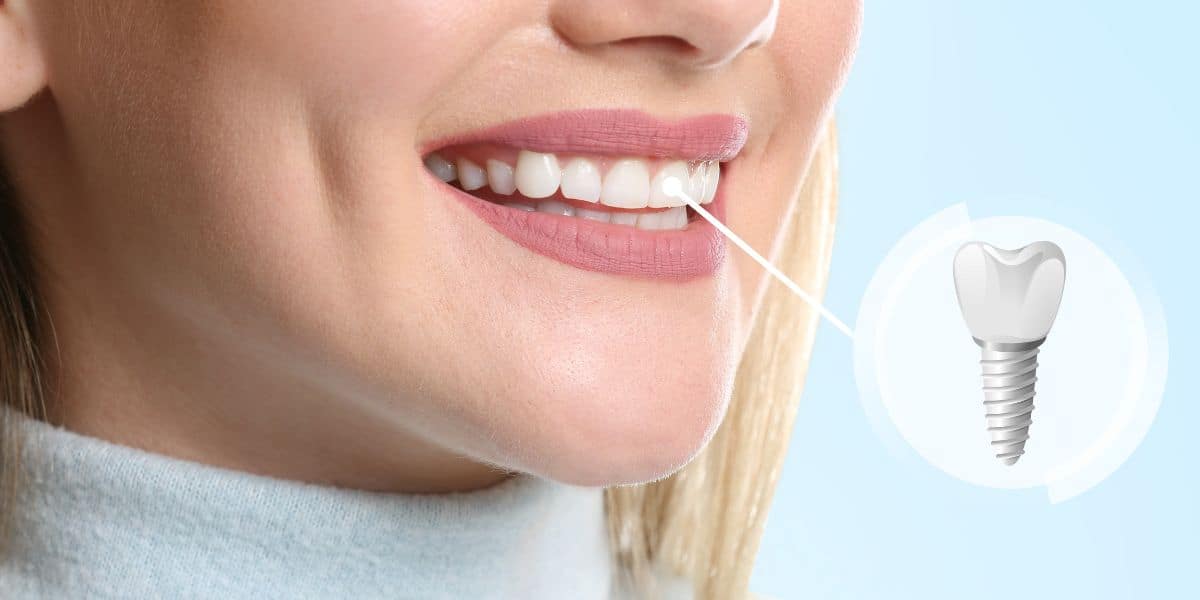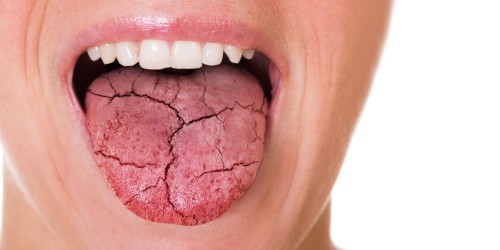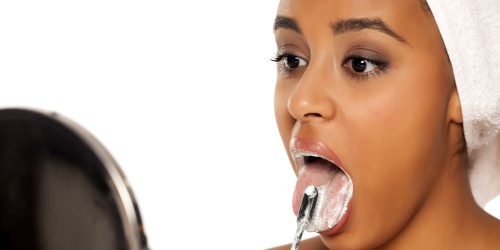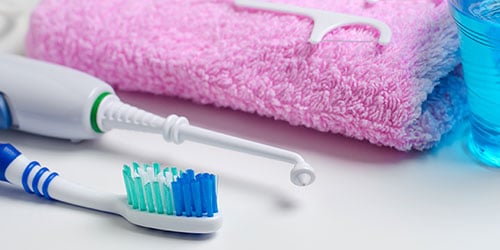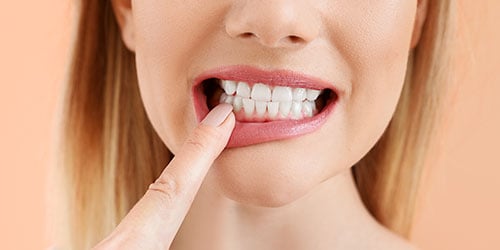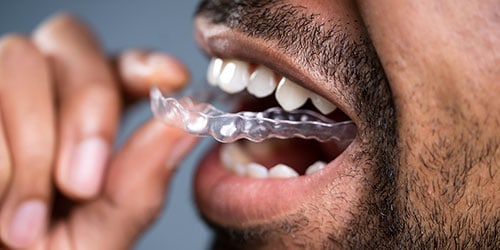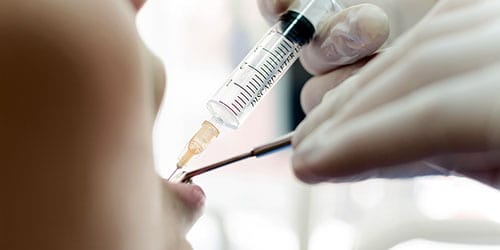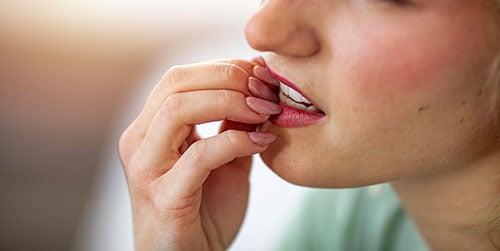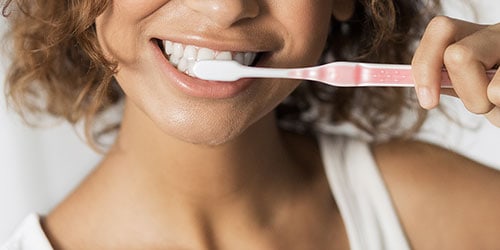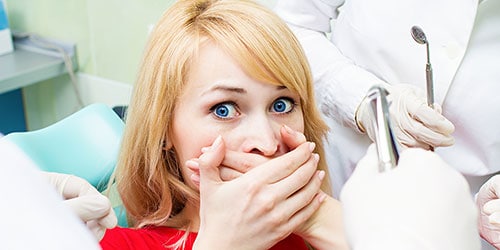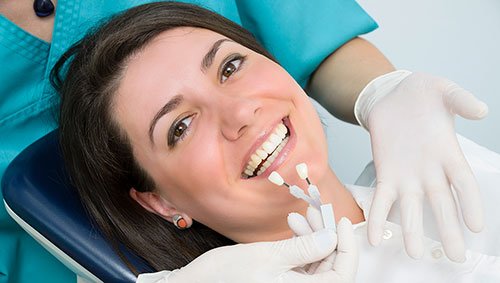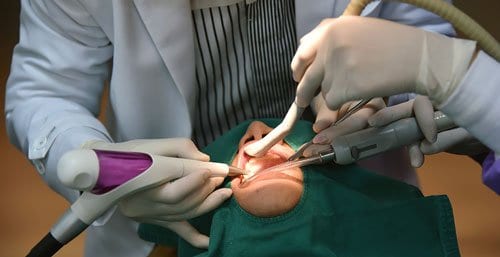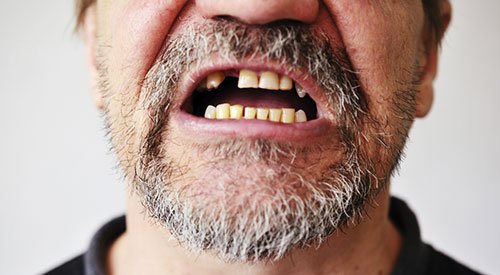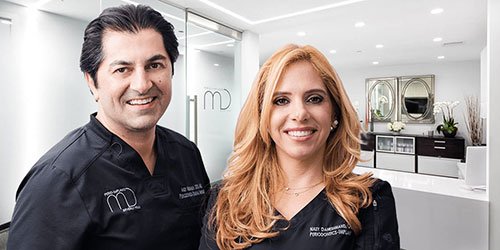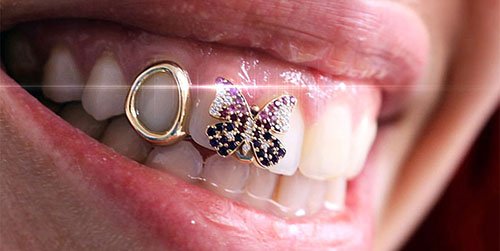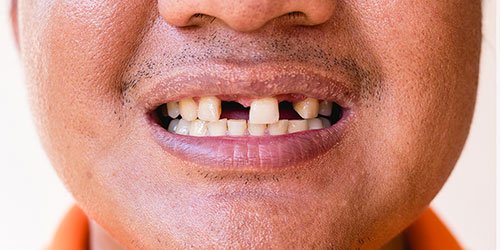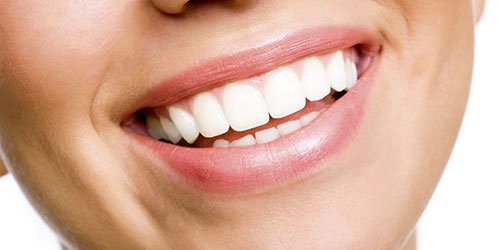Bleeding gums is a well-known symptom of gum disease (gingivitis). However, there are many potential causes of bleeding gums ranging from benign (ill-fitting dentures and over-aggressive tooth brushing) to serious (vitamin deficiencies and medical conditions).
If you’re generally on top of your oral care routine and start to notice bleeding gums, consult MD Periodontics’ expert periodontists for an oral evaluation.
And if you’ve been slacking on your dental care, come see us as well! Your oral health can have a negative impact on your overall health, so it’s important to keep on top of your tooth and gum health.

Why does gum disease cause bleeding gums?
Gingivitis is an early form of gum disease caused by poor oral hygiene and a common cause of bleeding gums. When you don’t brush and floss properly, bacteria isn’t removed from your mouth. This bacteria forms a sticky film of plaque buildup along the gumline which, if not removed, hardens into tartar which can only be removed with a professional dental cleaning.
Exposure to plaque causes inflammation of the gums, making them red, swollen, and prone to bleeding. Other symptoms of gingivitis include bad breath caused by bacteria buildup. If left untreated, gingivitis will progress into more advanced periodontal disease which can result in tooth loss.
If you notice bleeding gums, contact our office for a dental check-up to evaluate and treat any dental health problems.

Can mineral and vitamin deficiencies cause bleeding gums?
Proper nutrition is essential for optimal oral health. Deficiency in certain nutrients can result in bleeding gums.
- Vitamin C is vital for wound healing and strengthening bones and teeth. Severe vitamin C deficiency (scurvy) results in bleeding gums and loose teeth.
- Vitamin K helps with blood clotting. While rare, vitamin K deficiency can result in uncontrolled bleeding.
- Iron helps in blood platelet formation and controlling bleeding. Iron deficiency (anemia) can make bleeding more common and harder to stop.
If your healthcare provider suspects a vitamin deficiency, they can check your vitamin levels with a blood test.
What medical conditions cause bleeding gums?
Oral health is linked to many other parts of your overall health; both in the sense that bad oral hygiene can increase your risk of other medical problems and that medical conditions can impact your oral health.
A few health conditions that can cause bleeding gums include:
Diabetes
According to the American Academy of Periodontology, diabetes can be a risk factor for gum disease. Diabetes decreases saliva — thereby decreasing your natural protection against tooth decay — and increases the amount of glucose in your saliva — increasing the amount of sugar your mouth bacteria have to feed on.
Leukemia
There is a link between bleeding gums and cancer, for example, leukemia, especially in the early stages. Leukemia can result in easy bruising and bleeding, making it easier for your gums to start bleeding.
Autoimmune disease
Autoimmune diseases are when your immune system mistakenly attacks healthy cells. These conditions can cause oral health issues. Some examples of autoimmune diseases that can lead to bleeding gums include systemic lupus erythematosus and Sjögren’s Syndrome.
Are bleeding gums always bad?
Bleeding gums aren’t always a sign of something serious, sometimes they’re just an unfortunate side effect of benign.
Do hormonal changes cause bleeding gums?
Research shows that the rise in estrogen and progesterone during puberty, menstruation, and pregnancy increases the risk of gum inflammation. The increased hormone levels stimulate the growth of bacteria and plaque, and the body’s inflammatory response causes swollen, bleeding gums.
Conversely, decreasing hormone levels during menopause negatively impacts bone density and blood flow to the gums, leading to bleeding and receding gums, loose teeth, and cavities.
Does medication cause bleeding gums?
Some medications can cause bleeding gums as an unintended side effect, including:
- Blood thinners
- Antiplatelet drugs
- Some epilepsy and anti-seizure medications
- Chemotherapy drugs
- Immunosuppressant drugs
Why choose MD Periodontics for bleeding gums?
Two of Southern California’s most trusted and respected periodontists and holistic dentists are the American Board of Periodontology-certified husband and wife team of Dr. Abdy Moshrefi, DDS, and Dr. Nazanin Daneshmand, DDS.
At our beautiful Beverly Hills offices, MD Periodontics offers patients the best periodontic treatment in Los Angeles. Our holistic approach to dentistry ensures that your treatment utilizes the least toxic materials, advanced technology, and amenities, including aromatherapy, to minimize discomfort and stress during procedures. You’ll experience a supportive atmosphere you would never expect at a dental office and results you’ll love.
Call us at (310) 859-9449 to book a consultation or schedule online. Your smile will thank you!
We are conveniently located for patients throughout Southern California and the Los Angeles area. Our board-certified periodontists and implant dentistry experts are available at locations in or near Santa Monica and Beverly Hills. We are conveniently located near West Los Angeles, Culver City, West Hollywood, Downtown Los Angeles, Marina del Rey, Pacific Palisades, Malibu, Manhattan Beach, Sherman Oaks, and Encino
- How To Pick The Best Dental Implant Specialist Near Me - September 17, 2024
- Can Bleeding Gums Be a Symptom of Something More Serious? - May 27, 2024
- What Is Hydroxyapatite Toothpaste, and Is It Better for You? - May 1, 2024
 (310) 859-9449
(310) 859-9449 Can Bleeding Gums Be a Symptom of Something More Serious?
Can Bleeding Gums Be a Symptom of Something More Serious?
 or call us at
or call us at 




